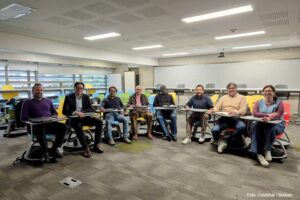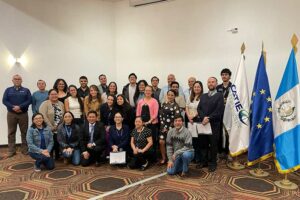CATIE contributes to disaster risk reduction and climate change adaptation in the countries of the region
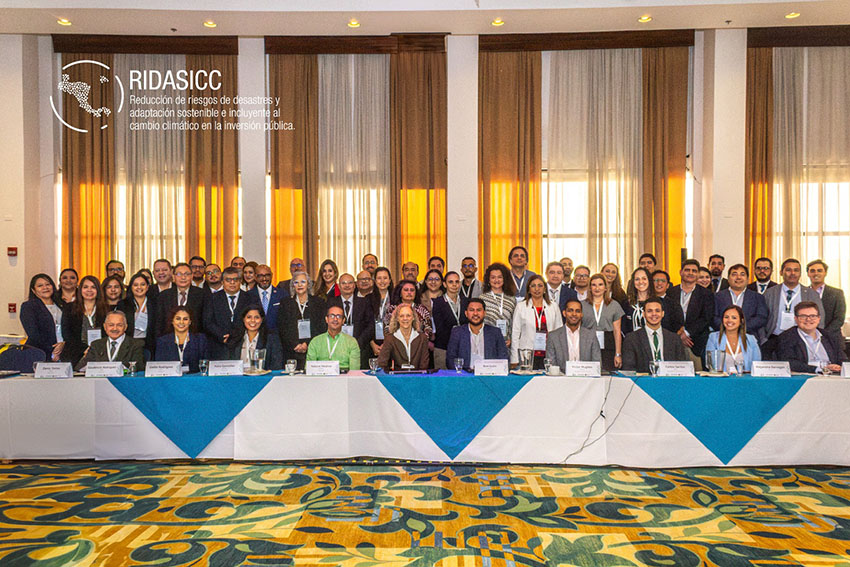
- As a partner of the RIDASICC project, it promotes climate resilience and the integration of Nature-based solutions for public infrastructure projects.
November 20, 2023. The 10th regular meeting of the Regional Technical Committee (RTC) of the Disaster Risk Reduction and Sustainable and Inclusive Adaptation to Climate Change in Public Investment (RIDASICC) project, implemented by the Economic Commission for Latin America and the Caribbean (CEPAL) and the Executive Secretariat of the Council of Ministers of Finance of Central America, Panama and the Dominican Republic (COSEFIN), was held in San José, Costa Rica, from November 14 to 16.
Within the framework of this project, CATIE (Tropical Agricultural Research and Higher Education Center) has played the role of promoting the integration of Nature-based Solutions (NbS) for risk reduction in public infrastructure investments.

Since 2020, the RIDASICC project has been working with seven ministries of finance and three secretariats or planning ministries responsible for the National Public Investment Systems in SICA member countries, which are in charge of public investment in the sectors of drinking water and sanitation and road infrastructure, environment and spatial data.
As a result of this work, training has been provided to formulators and evaluators of public investment projects, methodological guides and practical tools, as well as a platform and modules of geographic information. These results have been managed and developed jointly with multiple national and regional actors, including CATIE, and have addressed the needs of each country and institution.
"From CATIE, we contribute on issues of conceptual development to integrate NbS in infrastructure projects, integration of an ecological perspective in the characterization of risk and its management, as well as information and development of tools for developers of public infrastructure projects," said Pablo Imbach, coordinator of the Center's Climate Action Unit.
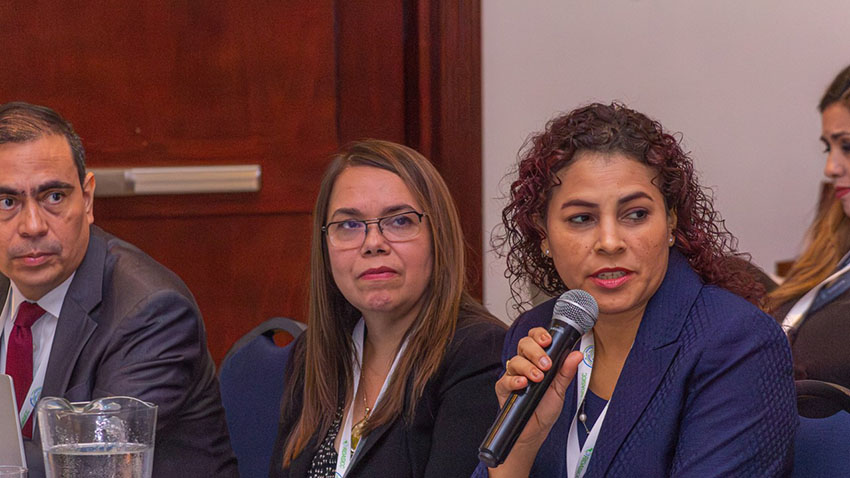
The tools provided will enable Costa Rica, El Salvador, Guatemala, Honduras, Nicaragua, Panama and the Dominican Republic to generate public investment projects with criteria for disaster risk reduction and sustainable and inclusive adaptation to climate change.
In SICA member countries, public infrastructure that provides essential services to the population faces threats associated with natural phenomena such as hurricanes, floods and droughts. At the same time, climate change exacerbates these threats. In addition, the degradation of ecosystems by human activity combines with changes in climate, aggravating the risks faced by public investments. This complex combination of adverse factors increases the risks faced by the population and the infrastructure that provides them with services.
During the meeting, Hugo Beteta, director of CEPAL Subregional Headquarters in Mexico, referred to international discussions on the importance of making massive quality investments with projects that are resilient and adapted to climate change and with better risk management.
Beteta stated that it is not only a matter of having the macroeconomic capacity to incur debt, but also the capacity to formulate and evaluate projects. He emphasized that RIDASICC has focused on building national capacities, generating toolboxes, platforms, data and geographic information systems, and establishing networks of experts to prepare for what is to come in a region that is highly exposed to the risks of climate change.
Nearly eighty representatives from the SICA/COSEFIN region participated in the meeting.
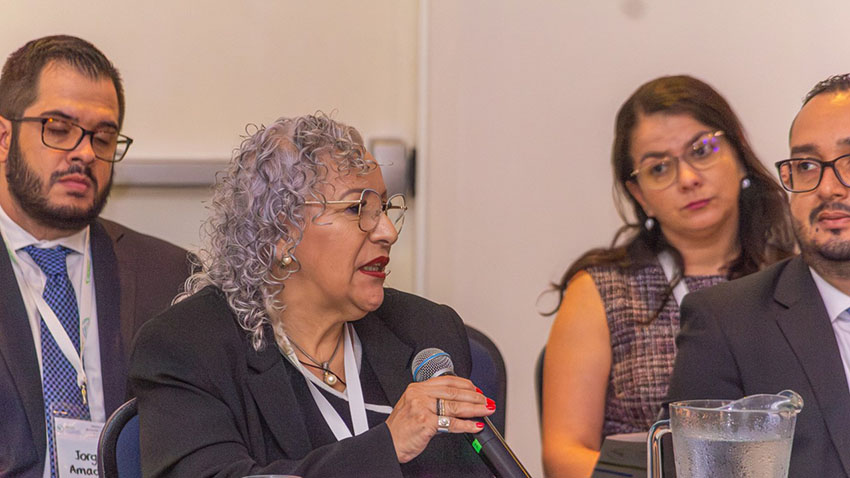

About RIDASICC
The RIDASICC project focuses on capacity building and has interconnected components of training with a "learning-by-doing" approach, strengthening of methodological guidelines, generation of tools, pilot projects and strengthening of geographic information systems required for the formulation and evaluation of public investment projects.
The project works to strengthen SICA bodies, including COSEFIN, the Sectoral Council of Central American Ministers of Transportation of the Central American Economic Integration Secretariat (COMITRAN/SIECA), the Coordination Center for Disaster Prevention in Central America and the Dominican Republic (CEPREDENAC), the Regional Committee on Hydraulic Resources (CRRH) and the SICA General Secretariat.
Written by:
Karla Salazar Leiva
Communications Officer
Communications and Marketing Office
CATIE
karla.salazar@catie.ac.cr


